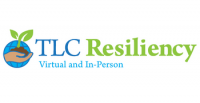Think about this- have you ever been stressed or in trouble and one of your first thoughts was to reach out and ask a friend for help, whether it was to share concerns, get a new perspective or just vent?
There’s a reason for that, and it starts with the fact that humans are innately social beings who benefit from supporting one another.
American Psychological Association wrote in its resilience report: “Many studies show that the primary factor in resilience is having caring and supportive relationships within and outside the family. Relationships that create love and trust, provide role models and offer encouragement and reassurance, help bolster a person’s resilience.”
Research on both humans and animals has shown us the importance of relationships for resilient lives. Here are a couple things research has told us:
- Positive relationships can provide a safety net for us from the negative effects of stressful life events and promote increased physical and emotional health as well as feelings of support.
- Having just one source of quality social support is enough to promote well-being and predict decreased depression later on (Teo et al., 2013).
- Having strong relationships helps us feel confident (another 7 C) and optimistic, which are two characteristics which promote resilient responses to stress as well.
There is also research to support that negative reactions can be decreased through the presence of positive relationships. One study revealed that women who attended sessions with their husbands were less reactive to mild electric shock and felt decreased threat. Interestingly, just the presence of their husband was enough to promote this response, whether the spouses were holding hands, or not (James et al., 2013). Basically, just being around someone we value and feel safe with is enough to limit our stress reaction in real time!
Overall, relationships can be challenging as they require reciprocity and maintenance to stay successful, but the benefit outweighs the cost. A valuable relationship allows a person to share their experiences, ideas, opinions and feelings on a situation; help meet needs through asking for help and receiving it; and provide emotional and physical support. These variables can lighten the load a person experiences through drawing upon family and friends, allowing them to be more flexible and resilient in the face of stress, tackle challenges head on and heal more quickly.
So why does this all matter, and more importantly, how does it apply to you?
If we can understand the value of social relationships and their ability to promote resilience through protection and healing, we can then choose to act in ways which strengthen this interaction in our own lives by being a good friend, family member and member of the community, as well as benefiting from these supports in return.
How can you increase positive connections in your life?
- Call a friend you have not spoken to in awhile
- Set quality time aside in your schedule to get together with a friend (the same way you do things for personal self-care)
- Consider meeting for coffee, pursuing a hobby, attending a local event
- Stay connected through a quick email or social media chat when face-to-face is not an option
- Send a card or small gift to a friend when something important happens in their life (new job, etc.) or just because!
- Make time to celebrate the big things!
- Shared joy increases connection.
- Be there for friends and family during hard times, as you would expect and need during your own adversity.
- Be mindful when with others – stay off the phone and devices and have conversations!
Teo AR, Choi H, Valenstein M (2013) Social Relationships and Depression: Ten-Year Follow-Up from a Nationally Representative Study. PLoS ONE 8(4): e62396. https://doi.org/10.1371/journal.pone.0062396
James A. Coan, Shelley Kasle, Alice Jackson, Hillary S. Schaefer & Richard J. Davidson (2013)Mutuality and the social regulation of neural threat responding, Attachment & Human Development, 15:3, 303-315, DOI: 10.1080/14616734.2013.782656
Authors: Casey Ferri, M.S. & Jaclyn Gordon, M.S.

